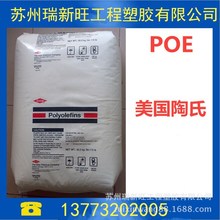Recently in Politics
- What You’re Not Seeing From the Darién Gap
- Congress’ Perpetual Coup Machine Is Merely Resting
- The Story About a Worm Eating RFK Jr.’s Brain Is Not As Funny As It Sounds
- I Read the Embattled Columbia President’s Old Book About What We Owe Each Other. It’s … Not Good.
On Monday, New York Gov. Andrew Cuomo delivered his daily coronavirus press conference and issued what has now become a standard entreaty: pleading for the federal government to help supply the states with necessary medical equipment by utilizing the Defense Production Act to order businesses to start ramping up production of critical supplies.
Democratic leaders and officials from Senate Minority Leader Chuck Schumer to Democratic presidential candidate Sen. Bernie Sanders, to former presidential candidate Hillary Clinton, to Rep. Alexandria Ocasio-Cortez have all pleaded with the Trump administration to begin using the act to supply states and cities with badly needed masks, ventilators, and other critical equipment as inventory is being used up by an influx of COVID-19 patients that is only growing by the day.
AdvertisementCuomo’s request on Monday offered a clear and cogent explanation for why it is necessary for President Donald Trump to invoke the Korean War–era act, which allows him to order production of vital goods during national emergencies. In the absence of federal command and coordination, states have been pitted against one another in bidding wars for the medical products of a limited number of suppliers. As Cuomo said:
Advertisement Advertisement Advertisement AdvertisementThis is ad hoc. I’m competing with other states. I’m bidding up other states on the prices. Because you have manufacturers who sit there and California offers them four dollars, and they say ‘well California offered four dollars.’ I offer five dollars, another state calls in and offers six dollars. It’s not the way to do it. I was speaking to Illinois Gov. J.B. Pritzker yesterday about this. Why are we competing? Let the federal government put in place the federal Defense Production Act. It does not nationalize any industry. All it does is say to a factory, you must produce this quantity. That’s all it does. …
The federal Defense Production Act just says you can tell a company, ‘Manufacture this many by this date.’ Yes, it is an assertion of government power on private sector companies. Yes. But: so what. This is a national emergency. And you’re paying the private sector company. They’re going to produce a good and they’re going to get paid. And by the way they’re going to get paid handsomely. You cannot continue to do these supplies on an ad hoc basis.
Trump, who would have to personally order the DPA to go into effect, sent his own message to Pritzker and other desperate governors on Sunday in response to those DPA requests.
Advertisement.@JBPritzker, Governor of Illinois, and a very small group of certain other Governors, together with Fake News @CNN & Concast (MSDNC), shouldn’t be blaming the Federal Government for their own shortcomings. We are there to back you up should you fail, and always will be!
— Donald J. Trump (@realDonaldTrump) March 22, 2020
Trump’s refusal to take on the obligation to solve the medical-supply crisis is in line with his personal history and entire response to the current pandemic, including his statement earlier this month that “I don’t take responsibility at all” for the administration’s early testing failures that helped the disease spread unchecked around the country.
Yet Trump—through his DPA powers—is currently the only person who can take on the responsibility for bolstering an about-to-collapse health care system, to protect untold numbers of lives of people in this country.
What is he waiting for, exactly?
AdvertisementThe response to Pritzker suggests he’s waiting for states to “fail”—that is for widespread shortages of ventilators to lead to rationing that leads to mass death, as has already happened in Italy—before swooping in to play the hero and “back you up.”
AdvertisementBut that was only the latest in a series of evasion, lies, and changing positions Trump has offered around the question of using his DPA powers. On Wednesday, he said he was invoking the DPA but did not do anything to put it into action. Afterward, he said he would only actually utilize it “in a worst case scenario.”
AdvertisementBy Friday, after facing a series of questions during the daily coronavirus task force press conference about why he hadn’t issued DPA orders, as the conditions in New York have headed toward a “worst case scenario,” Trump suggested that he was already taking DPA action: “When we need something because of the Act, when we need something, we order something,” he told reporters.
AdvertisementA reporter then asked the president if had “actually directed any companies to start making ventilators or masks.”
“I have,” Trump said. “I have. Yes.”
The reporter then asked the obvious follow-up question—given there had been no announcement about any DPA orders whatsoever—“How many?”
Advertisement Advertisement“A lot,” Trump said. “A lot. And they’re making a lot of ventilators and they’re making a lot of masks.”
By his press conference on Sunday, Trump all but admitted that this was a lie, conceding that he hadn’t used the act to direct companies to make emergency products, and saying that some production had begun “on a purely voluntary basis.” Trump explained that he was ideologically opposed to using the DPA, because it was socialism, which doesn’t work.
Advertisement“We’re a country not based on nationalizing our business,” Trump said. “Call a person over in Venezuela, ask them how did nationalization of their businesses work out. Not too well. The concept of nationalizing our businesses is not a good concept.”
On Monday, the New York Times reported another apparent reason Trump has refused to utilize the DPA: corporate lobbying. As the Times reported, “The U.S. Chamber of Commerce and the heads of major corporations have lobbied the administration against using the act. They say the move could prove counterproductive, imposing red tape on companies precisely when they need flexibility to deal with closed borders and shuttered factories.”
AdvertisementCNN’s John Harwood reported on Monday that the Chamber opposed the used of the DPA because “no one can tell us what problem they are solving by invoking the DPA” and companies might be forced to “turn their attention to dealing with the legal questions and following the DPA.”
Advertisement AdvertisementAs the Times reported, the direct issue that would be handled by using the DPA would be the prevention of widespread shortages, as industry executives have refused or are unable to act on their own in sufficient numbers and coordination:
Industry executives say companies are reluctant to crank up production lines without purchasing guarantees from the government. With the economy in free-fall and factories shuttering around the country, few manufacturers are eager to invest in new machinery or venture into new products.
The failure of leadership, the Times noted, is causing mass confusion among the industries that, again, could be helping to lessen an even greater looming crisis:
Advertisement Advertisement AdvertisementIn interviews with participants in the process, from business executives to government officials, there is still widespread confusion about how much and what exactly each firm is supposed to produce. Corporate executives say they face a bewildering number of requests from dozens of nations around the world, along with governors and mayors around the country, for scarce supplies. The White House has not said who will set the priority list for deliveries. And it is not clear that any of it will arrive in time for the cities and the states that are hit the hardest, including New York.
Carla Bailo, the president of the Center for Automotive Research, told the Times that auto companies such as General Motors and Ford—that have shuttered their own car manufacturing operations as part of efforts to protect workers from the spread of the disease—could actually ramp up ventilator production “in as little as three to six weeks” if asked.
AdvertisementThe deadly shortages will likely hit sooner than that, which is why every day Trump does not utilize the act will likely be another day of health care rationing that will lead directly to large numbers of deaths. The number of confirmed cases in New York alone has exploded to more than 20,000 with 125 having already died, and Cuomo warned that his hospitals will likely need an additional15,000 to 34,000 ventilator-equipped intensive care unit beds in the days ahead.
AdvertisementAgain, in his press conference on Sunday, Trump rejected the premise when he was confronted with the reality of shortages and rationing, laying the responsibility—and blame—for the situation with others who don’t actually have the power to do anything about it.
“We’re really backing up the governors. The governors have to go out and do their things. And you have a lot of governors, they’ve done a fantastic job. You have some that haven’t,” Trump said. “Usually, it’s the ones that complain that have the problems. But we’ve had a great relationship as an example with Gov. Cuomo.”
As Cuomo emphasized on Monday, he was on the list of governors that were expecting widespread shortages as soon as next week unless Trump acts.
“Today we can get masks to anyone who needs them and gowns,” he told reporters about his state’s current stock of supplies. “I can’t promise you next week or the week thereafter and that’s why I want to see the federal government do this federal Defense Production Act and stop this ad hoc volunteerism.”
Tweet Share Share Comment








